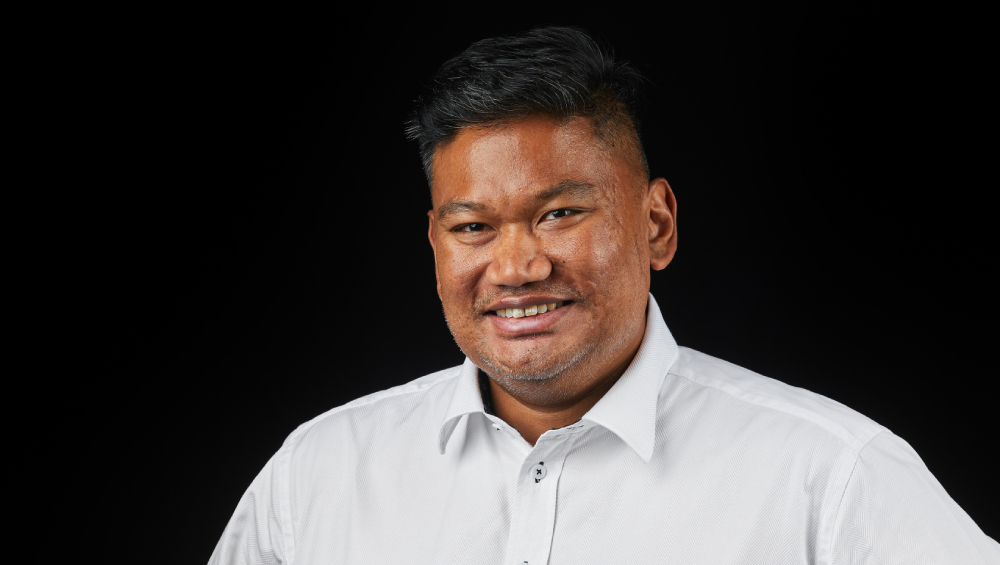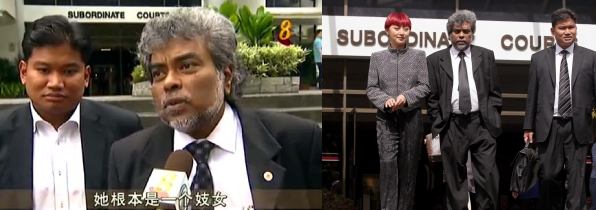SUNIL SUDHEESAN’S TAKES ON CRIMINAL LAW
Lessons gleaned from his uncle and Sunil's own 17 years in practice.

BY ASHUTOSH RAVIKRISHNAN
Later this month, Mr Sunil Sudheesan joins Justice Mavis Chionh for a discussion on best court practices, and he’s eager to find out what practices she thinks lawyers should steer clear of in court.
“We all know the basics like being prepared, but recently, some in the Criminal Bar might feel a little confused about how to depict the nature of a victim, if they feel it may be a relevant factor to sentencing,” says Sunil, the head of Quahe Woo & Palmer’s criminal department. “But the court might not accept the need for such arguments.”
He points to a prominent case two years ago where a senior lawyer was castigated for a “blatant and unapologetic attempt” to shame and blame the victim of a sexual assault. “Lawyers make that mistake because they can be wedded to the idea of the adversarial system, where they have to hammer an opponent. It’s fine if it were a case of aggression where the victim started a brawl. But you have to pull back that approach in a sexual assault case. That distinction isn’t always made clear to lawyers during their training and unnecessary victim blaming still happens.”
Sunil himself learnt that distinction from one of the greats of Singapore law—and his uncle—Mr Subhas Anandan. “Subhas didn’t like to bother with minuscule matters of little relevance. So even if you got some leeway in going after the victim, it would ultimately not help your client very much.”

Sunil learnt the tricks of the trade from his uncle, Subhas, who passed away in 2015
“Instead, if you concede things and frame the victim as a true victim if the situation allows, that could then amplify the sincerity of your client’s remorse. But if you must make points about the victim, do it when you recount the facts and do it in as respectful a manner as possible.”
You’re in your 17th year of practice. What are some other lessons you’ve picked up?
“Nobody ever criticises you for speaking too slowly,” said Chelva Rajah SC to us during our PLC advocacy course. But you lose a lot of good points when you talk too fast. As I was training, I used to watch the judge’s pen—and I would have to remind my uncle to slow down so that the points he was making could sink in. I still watch the judges till this day, although the pens are mostly keyboards now. And when I forget, my trusty assistants better nudge me.
And also, I alluded to this earlier: concede where you can and should. Counsel sometimes spend too much time fighting about things they should actually concede. Bring your argument back to your strong points when you can, rather than lose the court arguing over something trivial.
Is criminal advocacy different in the State Courts and High Court?
The sheer volume of the State Courts cases means that the judge is less likely to fully grasp the nuance and minutiae in mitigation pleas. High Court Judges deal with one criminal case at a time and approach cases with a laser focus; State Court judges do not always have that luxury. So you may want to spend a bit more time engaging on the balancing of sentences: the prosecution is asking for this, I’m asking for this. We agree on points X and Y but they have overstated point Z. Things like that.
In the High Court, it’s slightly different. When the prosecution submits, you get an inkling of where the court is coming from, based on the questions asked by the court. So you know which areas to hone in on when your turn comes.
What kind of trials do you find unnerving?
One where the judge is very silent. I prefer an interventionist bench because it’s more of a conversation than a monologue. Then you can engage the court better and understand the judge’s concerns.
The Criminal Bar appears to be a close-knit community. What advice do you have for juniors entering the fray?
Where possible, we employ the help of the courts to get information from the prosecution. The pre-trial conference is key to this. I may tell the judge, “I need this by this date”. But if you keep quiet and then later complain when the prosecution doesn’t share information with you … closed mouths don’t get fed!
Is it known that you can ask these things?
There’s nothing stopping you, it’s whether you want to ask or not. Come for our discussion to learn more tricks.
Any other parting words?
You need to let the prosecution know what information you want ahead of time and why you need it. They appreciate the frankness and candour more than having things sprung on them at the last minute.
Separately, know that your seniors are here to help and back you if you need some heft. I’ve been doing this for 17 years so I’ve gained the trust of many DPPs. Come talk to us about your problems and more often than not, we can help, either by speaking to the DPP directly or the people they work with, because we know them.
How can they get in touch with senior practitioners?
Well, look for the ones in your firm first. If that fails, approach a body like the Association of Criminal Lawyers (Singapore) or the Law Society’s Criminal Practice Committee, or meet lawyers at events like the upcoming discussion we’re hosting.
On 13 March 2023, Sunil joins Justice Mavis Chionh, Assoc. Prof Mervyn Cheong (NUS) and Mr Ng Yiwen (AGC) for an in-person discussion on the best practices in court, including perspectives from the Bench. Senior Criminal lawyer Mr Ramesh Tiwary (Ramesh Tiwary) will moderate the dialogue. Registrations are closed.






